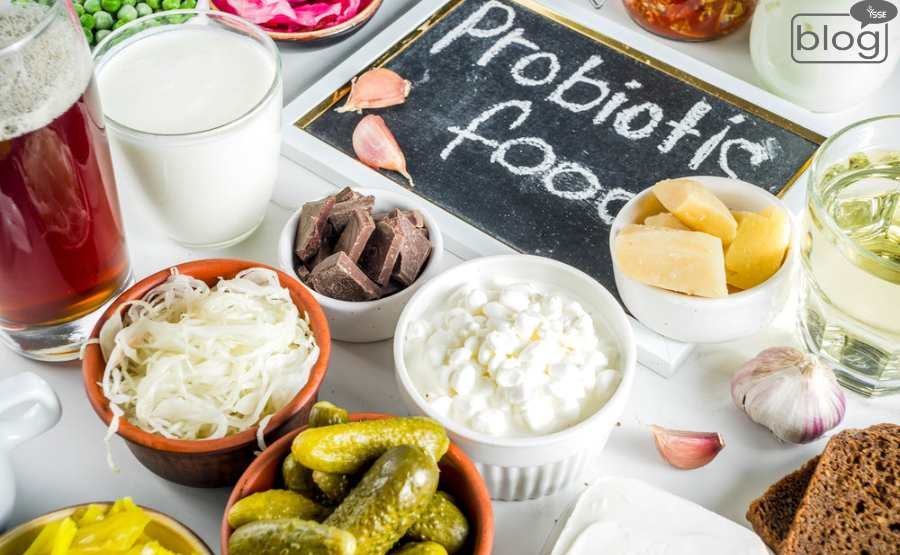Nowadays, we’ve probably heard about the gut microbiome, the populations of trillions of microbes, mainly bacteria, which live inside our gastrointestinal tract.
Many of us probably also know that it’s essential to eat the right foods to keep our beneficial gut bacteria—also called probiotics—healthy.
But how, exactly?
So, in this blog I am giving some guidelines for the best and worst foods to eat for an optimum gut-health diet.
Best Foods for Gut Health
Mostly Plants
We’re not big on miracle diets here, but there is one simple move that truly will help our gut health dramatically: Eat a varied diet, consisting mostly of plants (preferably organic).
A diverse, plant-based diet like the well-known, easy-to-follow Mediterranean Diet will give us the range of fiber and nutrients that our gut bacteria need in order to thrive.
Fiber Foods
Fiber, or “roughage,” as it’s sometimes called, is best known for helping keep anyone, ahem, regular.
It helps satisfy our hunger longer, too, and decreases our cholesterol levels.
What’s more, it’s great fuel for our gut microbes—particularly a type of fiber, mostly indigestible by us, called prebiotics.
Our good bacteria—aka the probiotics—gotta eat, and these tiny bits of indigestible fiber are good bacteria’s favorite food.
Omega-3 Fatty Acids with Seafood
Omega-3 fatty acids have been linked to greater microbial gut diversity.
They also have a host of health benefits, like lowering inflammation, reducing symptoms of depression and improving heart health.
The foods which are highest in omega-3s are fatty fish and some shellfish (shrimp lack omega-3s).
Fermented Foods
Probiotics are the living, good bacteria in our gut microbiome.
However, probiotics can also be eaten in the form of “live active cultures” contained in naturally fermented foods like yogurt, kefir, tahini, kimchi and kombucha.
When we consume these foods, they increase the concentration of probiotics in our gut microbiome, to the benefit of our overall health.
Polyphenols Foods
Polyphenols are huge molecules in plants that help protect them against disease.
They’re too large to be absorbed in the small intestine, so they make their way to the large intestine, where they’re broken down into smaller, health-promoting molecules.
Consuming polyphenols seems to have a beneficial effect on gut microbial composition, suppressing pathogens and encouraging the growth of microbes that are good for us.
Vitamin D Foods
Vitamin D, aka the “sunshine vitamin,” helps us in many ways such as supporting the nervous systems, immune systems and boosting bone health.
It also helps to boost the growth of healthy gut microbiomes.
Worst Foods for Gut Health
Refined Sugar
There are many good reasons to minimize refined sugar intake.
One compelling reason is that too much sugar eliminates healthy gut microbiomes, which can cause inflammation in the body which can be prepared to open the door to bigger health problems.
Also, refined sugars are fastly digested by the first part of the small intestine, spiking our blood sugar and leaving the rest of our gut microbes hungry.
Factory-Farmed Meat
Industrial meat producers routinely administer doses of the drugs, antibiotics to their livestock to treat disease in the confined, crowded spaces where the animals are raised.
This malpractice increases the rise of drug-resistant bacteria in the animals’ gut microbiomes, which can spread to human gut microbiomes too, by consuming these foods.
Refined Grains
Simple carbs, empty calories, processed carbs—call them what you will, refined grains are stripped of their fiber, and most of their vitamins and minerals too by processing them.
Like refined sugars, they’re digested by the first part of the small intestine, elevating blood sugar and leaving nothing for most of our gut bacteria to eat.
Too Much Saturated Fat
Consumption of too much meat and high-fat dairy will change the microbes in our gut.
According to a study, an animal-based diet started to develop an abundance of Bilophila—microbes that like bile—to adapt to the bile needed to break down all that fat.
It’s kind of gross, to be sure, but also a problem because Bilophila can cause inflammation.
Fried Foods
It’s long been said that an excess consumption of fried foods is bad for us and they also rough on our microbes.
In a study, people who consumed fried meat ended up with less diverse gut microbiome than the control group, with impaired blood-sugar balance and higher toxin and inflammation levels.
It all comes back by eating lots of fruits, vegetables, nuts, seeds and whole grains and fermented foods like yogurt,kimchi,kefir kombucha etc. for probiotics.
Eat processed foods in a moderate amount and minimize the amount of added sugars, salt, artificial sweeteners and alcohol to keep our gut microbes happy and our risk of chronic illnesses low.
To read more blogs,click here
Writer
Kulsuma Bahar Bethi
Content Writing Intern
YSSE

